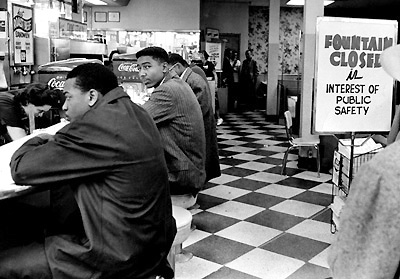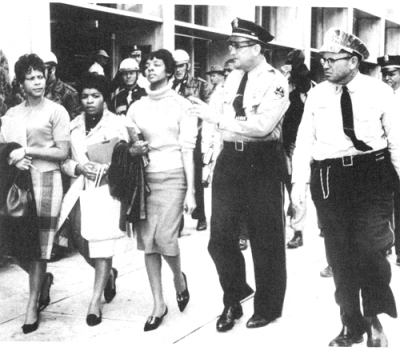When the State gives doctors power over their patients, the doctors’ primary loyalty will be to the power of the State, not to their patients
(Via Cheryl Cline @ der Blaustrumpf 2008-12-02: Trusting Doctors.)
The first step is that the State grants legal privileges to doctors. Or, more specifically, to those doctors who practice medicine according to the approaches favored by the government and government-backed medical guilds like the American Medical Association. These privileges for officially-approved doctors to force their competitors out of business with threats of fines, jail, or death, and thus to force captive patients to seek their services. In many countries, these privileges include a large apparatus of government-subsidized healthcare, in which government-approved doctors are paid largely, or entirely, by funds that the government has taken from unwilling taxpayers. (Healers whose practices are not officially approved by the government, obviously, receive none of these subsidies.) In some cases, they also involve the power of doctors — especially psychiatrists, or other doctors treating children, or treating adults labeled as insane
or feeble-minded
— to force invasive treatment
on unwilling patients
through the use of deception, threats, restraint, and, if necessary, outright violence.
When the government gives doctors this kind of unaccountable, legally-backed plenary power to control or coerce their patients, it converts the medical profession into a class of legally elevated and legally regulated mandarins, who expect and enjoy considerable political power through their legally-privileged professional associations and through the State apparatus itself. Since doctors enjoy special privileges over their patients, and depend on legal force rather than on their patients’ judgment to get their way, the legal privilege helps foster a culture of arrogance and entitlement. And at the same time it creates a situation where doctors depend on government power for their wealth and cultural prestige, since they depend on it to create an artificial scarcity of medical services, and to keep patients captive to the doctor’s preferred regimen. Moreover, whenever medical doctors get special political privileges over their patients, politics defines what will be counted as legitimate medicine, and so medical doctors necessarily become politicians, acting a minor faction of the ruling class, just by establishing professional standards. When those professional standards are enforced by law, State-approved doctors’ professional associations are transformed from voluntary associations into a branch of the government, and medicine is transformed from a service to the patient into an arm of State policy.
And whenever, wherever, and exactly to the extent that the State gives doctors this kind of power over their patients, and makes them instruments of State policy, State-privileged doctors will owe their primary loyalty to power of the State, not to their patients.
The results of that shift in loyalty will depend on the nature of the State that claims their loyalty. When a State is relatively restrained, or simply incompetent, doctors will still help their patients, for the most part, rather than hurting them. When a State becomes more predatory, or lethal, politically-privileged doctors will be called on to be fine-tuned instruments of the predation or the murder. Since they depend on the State, politically-privileged doctors will usually answer the call, even if it means subjecting their victim-patients to malpractice, torture, or murder. Indeed, since a more powerful and invasive hygienic or therapeutic State means more power and influence for politically-privileged doctors, many of them will not only side with and collaborate with a predatory or lethal State, but will actively urge it onwards toward ever greater atrocities, and beg to be given the responsibility for carrying them out.



As Yoel Abells, a Toronto family doctor and medical ethicist, said of the experience in Germany under the Third Empire, and America under the United States government’s Global War on Terror
:
One fact Abells found particularly disturbing was that doctors joined the Nazi Party in greater numbers than other professionals.
Almost half of all doctors were members of the Nazi Party, he said, compared with only a quarter of lawyers or musicians, and to the 9 per cent of the German population as a whole.
Joining Nazi groups, he said, was
intoxicatingfor many doctors because of the power over life and death it gave them.Today, Abells said, a disturbing number of doctors continue to be involved in genocidal campaigns, terrorist organizations, torture and the interrogation of prisoners of war.
A report in the New England Journal of Medicine in September found that the U.S. Army continues to use doctors in its interrogation of suspected terrorists, despite every major medical association condemning the practice.
— Stuart Laidlaw, HealthZone.ca (2008-11-05): Medical atrocities did not end with Nazi era
As Cheryl Cline writes:
The collusion of the medical profession with the State is certainly nothing new. And sadly, it is not all that surprising. Intuitively, the public trusts its doctors and others perceived as
public servantsmore than it trusts, say, its lawyers or ad men. (The popular TV showMad Menis a perfect example of capitalization on our distrust of the capitalist-minded. Can you think of a show that would portray doctors in a similar light?) With so many people putting blind faith in government bureaucrats to foster the public good, it’s hardly surprising to see the two entities take advantage of the public's trust to merge and consolidate power.— Cheryl Cline, der Blaustrumpf (2008-12-02): Trusting Doctors
When doctors have this unchecked power to wreak torture or death on patients
— whether it’s thrust upon them by an aggressive State, or whether they collaborate with an ambitious State to get it — then you will always get atrocities. And that’s an outrage. But it should not be a surprise. It is not an abuse of power; the power itself is the abuse, and doctors will always and everywhere sweep aside their ethical obligations to patients in favor of political obedience to the State, as long as it is State power rather than patients’ consent that determines what counts as legitimate medical practice, and as long as State privilege transforms medical practice from a consensual service into a forcibly-wielded instrument of public policy — which is to say, an instrument of State power. Sometimes it happens in little, obnoxious ways (under little, obnoxious legal regimes), and sometimes it happens in big, deadly ways (under big, deadly legal regimes), but it’s been going on for a long time now, and there’s no way around it. No way, that is, except genuine freed-market medicine, the only thing that can free the medical profession from the influence of State power and to make doctors accountable to patients rather than to power. No way, that is, except to abolish all forms of political command-and-control over the practice of medicine and to let doctors return to providing nothing more, and nothing less, than a consensual, life-affirming service to willing patients.
See also:
- Charles W. Johnson, M.D., Medical Political Protection, in Rampart Journal of Individual Thought IV.3 (Spring 1968).
- GT 2008-06-25: State ownership of the means of reproduction. (#2)
- GT 2008-05-05: Texas psychoprisons
- GT 2007-10-29: For her own good
- GT 2007-10-25: Radical healthcare reform
- GT 2006-04-13: How physicians learned to stop worrying and love Big Pharma





